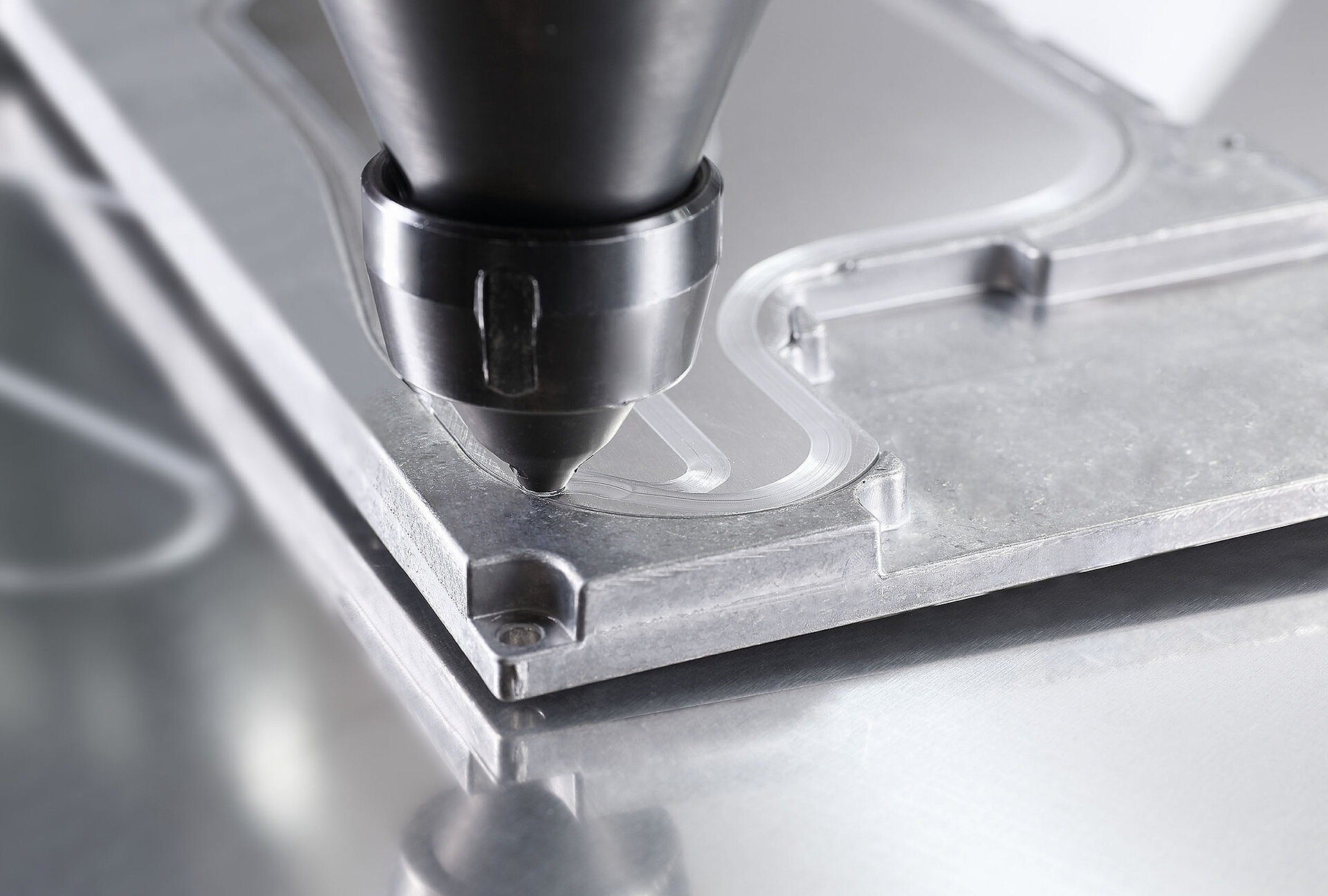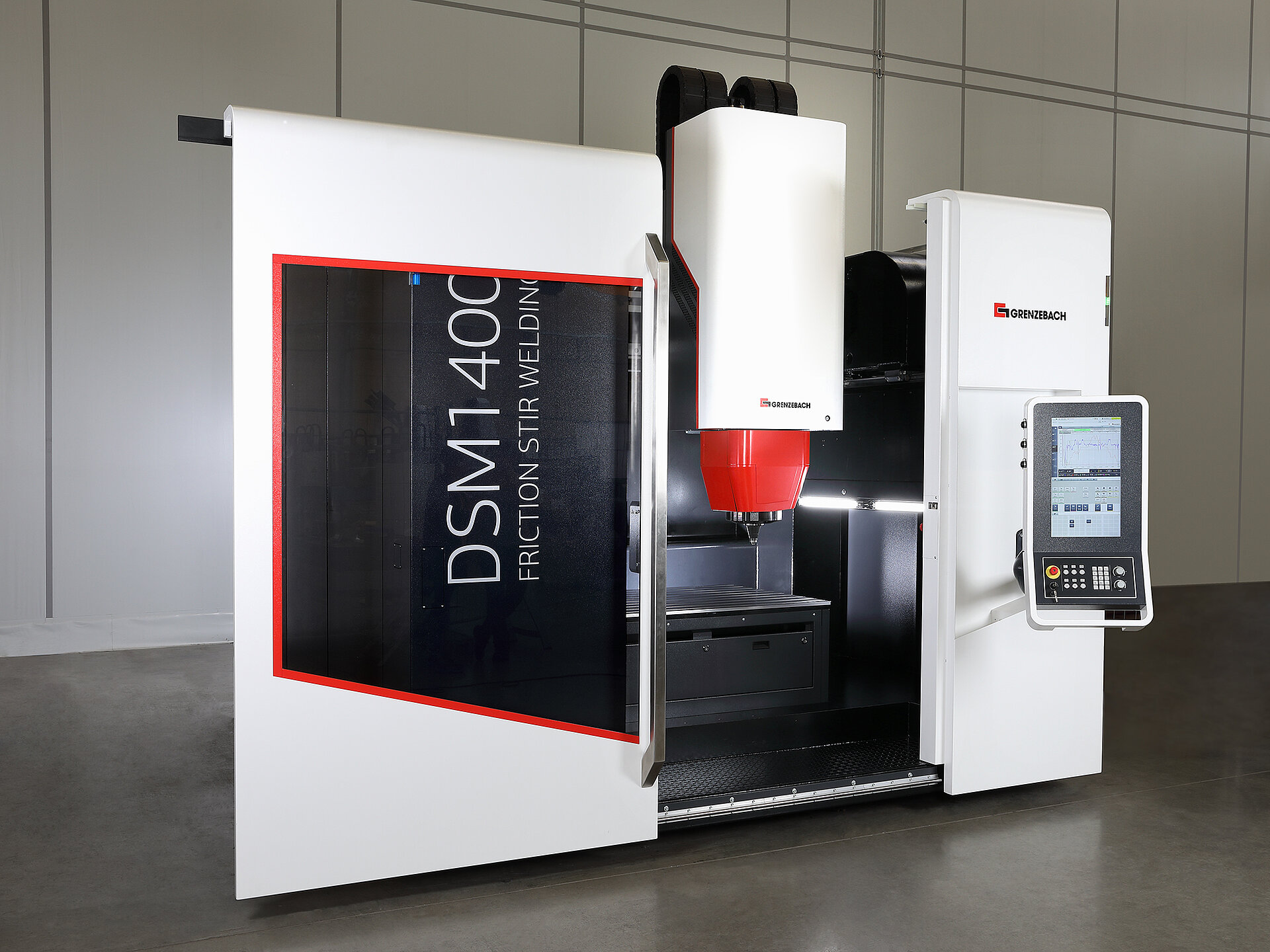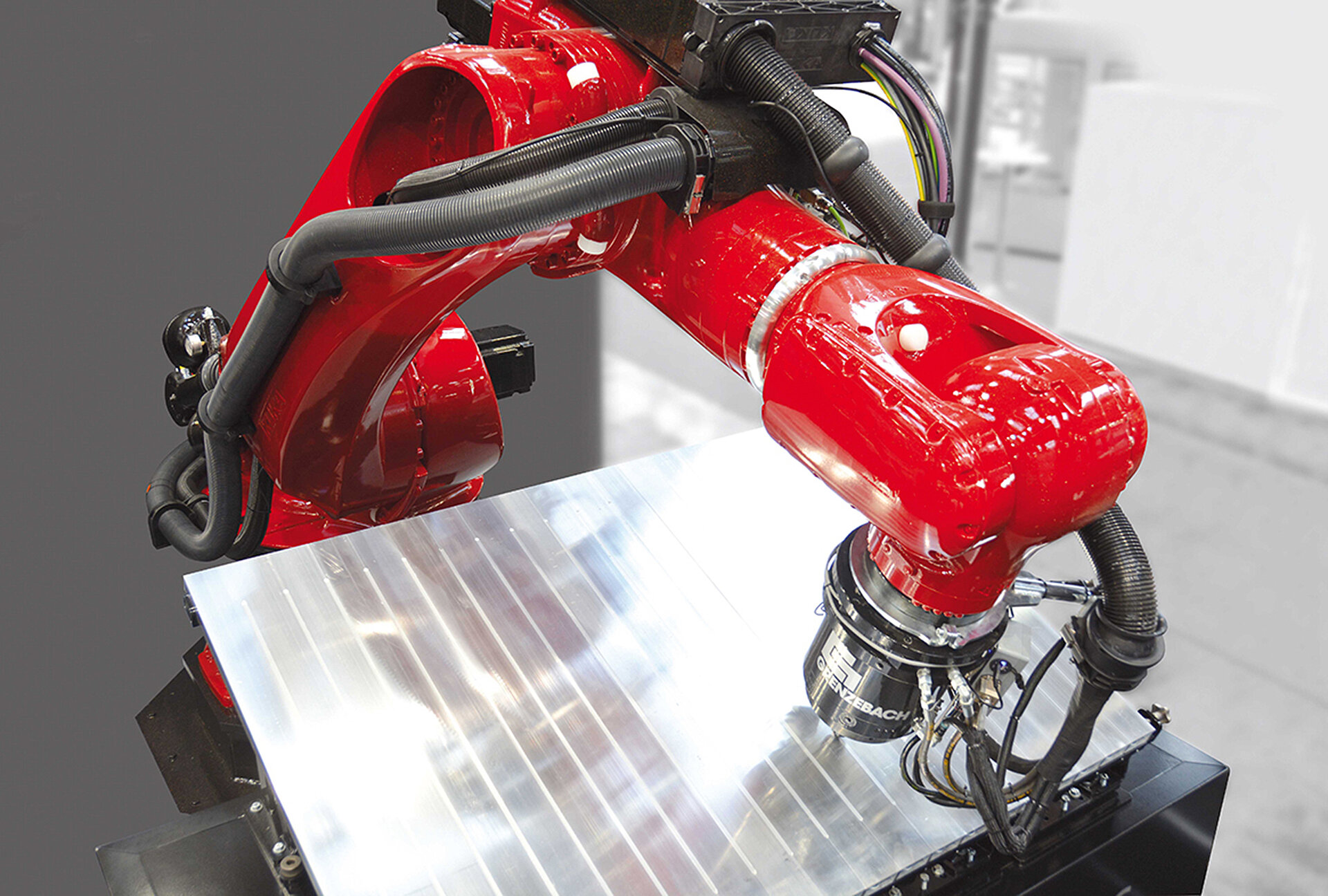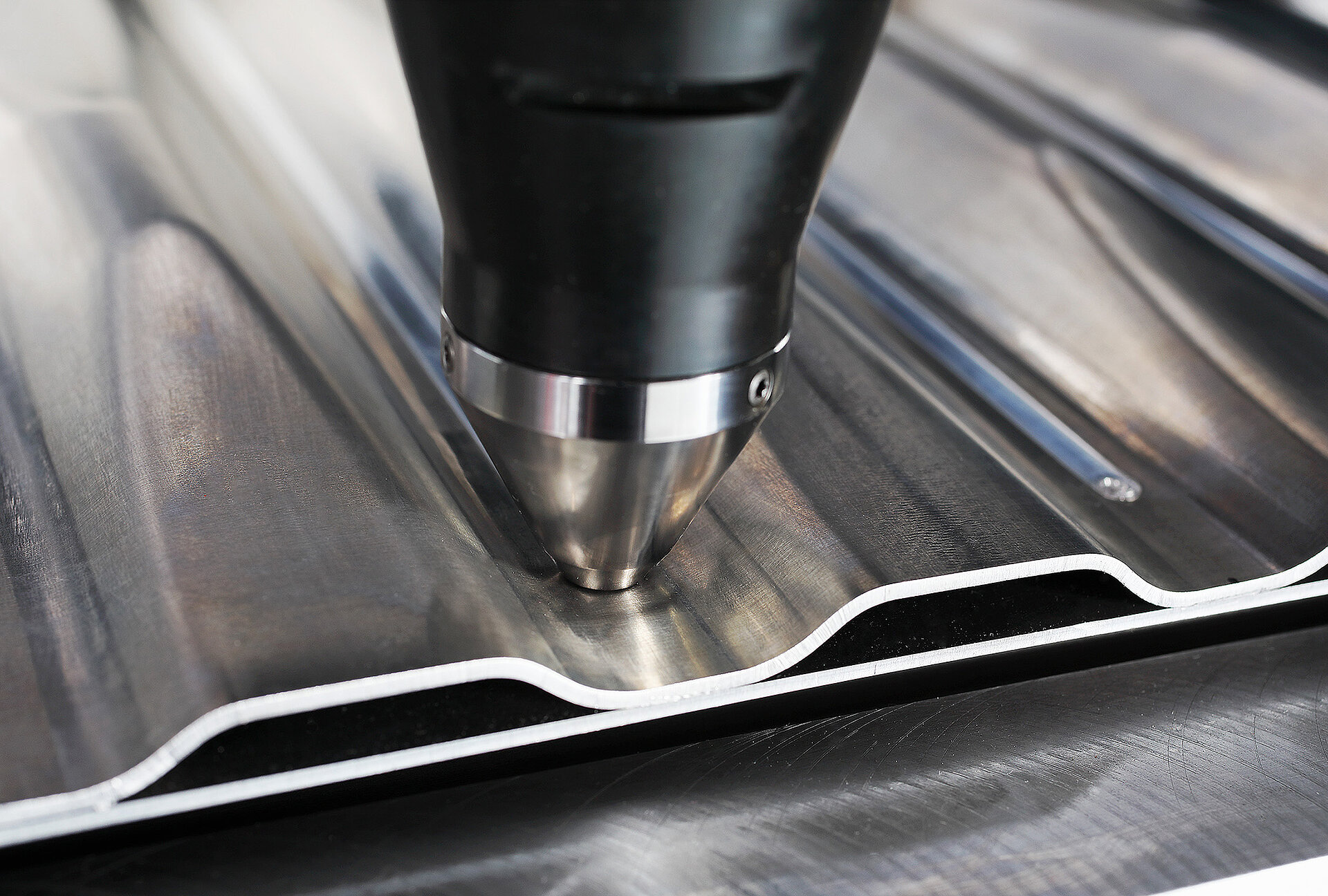Definition: What Is Friction Stir Welding?
FSW (friction stir welding) is a pressure welding process. During this innovative welding process, metals are stirred at their seam with a rotating tool and – in comparison to the arc and laser beam welding processes – are not melted. The seam is heated but joined in a still solid state. Therefore, friction stir welding is particularly suitable for joining aluminum alloys, mixed joints and technically pure metals.
Process: How Does Friction Stir Welding Work?
The conventional FSW process is easily explained in four simple steps:
Application: What Can Be Welded?
FSW is suitable for joining nonferrous metals and alloys with low melting temperature as well as dissimilar metal welds:
- Aluminum
- Copper
- Magnesium
FSW Is Particularly Effective When Processing Aluminum
It enables the joining of aluminum alloys, e.g. the 3000, 5000 and 6000 series, which are considered to be difficult or impossible to fusion weld. It is also an ideal process for dissimilar metal welds, such as aluminum sheets or extruded profiles with cast aluminum. FSW is more resistant to material defects, such as pores, shrinkage cavities,and fire cracks, than e.g. the fusion welding process.
Friction Stir Welding is Used in Various Industries:
- Automotive, in particular in e-mobility: Cast and extruded battery trays for hybrid and BEV (Battery electric vehicle) models, heat exchangers and power electronics
- Power transmission/power electronics
- Battery manufacturing
- Rail vehicle construction
- Aerospace and aviation
- Consumer electronics
Advantages: What Are the Benefits of Friction Stir Welding?
Excellent Welding Quality
- Durable welds that are media-tight and pressure-proof
- High and reproducible weld quality
- Robust, resilient and extremely load-bearing
- Low-distortion welds
- No pores or hot cracking, as the material has no liquid or vapor phase
Cost-Effectiveness
- Need for purchasing and storage of operating materials is reduced, since auxiliary materials such as shielding gas, powder or welding wire are not required
- Low energy consumption compared to classic welding processes
- Less preparation and post processing of seams necessary
- Low reject rates thanks to the high robustness of the process
Environmental and Health Protection
- No contamination by dust, gases, smoke, radiation
- Emission-free
- Quieter than common welding processes
- No auxiliary materials necessary, such as shielding gas, powder or welding wire
- Essential step in the production of components for e-mobility (heat exchangers and battery trays)
Friction Stir Welding: Your Concerns, Our Solutions
Friction stir welding (FSW) is a relatively new but at the same time forward-looking welding process for the industry to which we at Grenzebach are committed. We often receive questions and notice ambiguities regarding this process. We want to address your concerns and also show solutions.
Grenzebach – Supplier For Turnkey Plants
Grenzebach develops and supplies turnkey FSW plants – from gantry machines with customer-specific work areas to robots that can weld 3D geometries – and thinks ahead for the customers. Therefore, it is also key to consider the right technology of tools in addition to equipment technology. Based on customer requirements, the right friction tool is chosen: a one-piece (MonoSTIR) or multi-part tool (DynaSTIR) with a rotating friction pin and fixed shoulder.
Take Advantage of Our Equipment and Tool Portfolio!
Friction stir welding – solutions for your specific needs
For North America
Your Contact Person: John Fluker
Do you have questions about friction stir welding? Would you like to know whether a new idea can be implemented with FSW? Or do you need support in selecting a system? Please contact us. We'll be happy to advise you!

For all other regions
Your Contact Person: Sahin Sünger
Do you have questions about friction stir welding? Would you like to know whether a new idea can be implemented with FSW? Or do you need support in selecting a system? Please contact us. We'll be happy to advise you!










